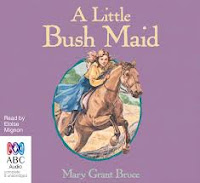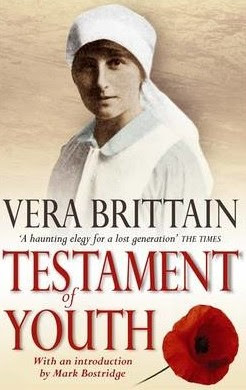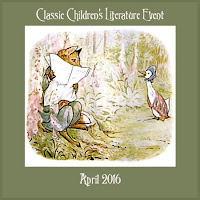I'm joining in Celeste's monthly link-up for April at the eleventh hour. If you'd like to know more about this link-up, or what 'Keeping' is all about, have a look at her introductory post. This month Celeste asked us to share what inspires us in our 'Keeping' habits:
Do you have favourite books on the topic?
Charlotte Mason's Original Homeschooling Series is a constant reminder and inspiration to me of the ideas and practices that underpin various forms of Keeping.
Handbook of Nature Study by Anna Comstock - I love the wisdom and practicality of this book. Even though a lot of the content is more applicable to the USA, there is still much to be distilled from this huge book to help me better teach my children:
Nature study is...a study of nature; it consists of simple, truthful observations.
If nature-study as taught does not make the child love nature and the out-of-doors, then it should cease...However, if the love of nature is in the teacher's heart, there is no danger.
Literature in general - beautiful or striking passages inspire me to keep a Commonplace book. There are things I come across that I just don't want to forget, and allowing words to 'pass through my fingertips' onto a blank page helps to impress them upon my mind.
Australian nature resources - some that I use regularly include the books below. I posted a list a couple of years ago with links to some of these plus others here. Some are free online and they are all excellent.
How to Attract Butterflies to Your Garden by Densey Cline
First Studies in Insect Life in Australasia by William Gillies
Nature Studies in Australia by William Gillies
Has a poem inspired your Keeping heart?
Oh, yes! I wrote a separate post for the April Poetry Celebration I've been involved in where I included some nature poetry we've enjoyed.
Inspiration from nature itself - there's nothing like an unexpected encounter to inspire us. On the Easter weekend my 21 year old son called out to me from the back of the house. When I got there he motioned me to be quiet and pointed to a rock wallaby outside. We hadn't seen any for awhile and as we watched, out from behind the bushes came her little joey. So cute! I managed to get a photo from behind the glass door of the mumma, but not the little one. You can see her eyeballing me to make sure I wasn't going to come near her baby...
Sometimes this doesn't lead to a notebook entry - and it didn't that day. We all just savoured the moment. This poem expresses the idea of having leisure in our lives to wonder:
Leisure
What is this life if, full of care,
We have no time to stand and stare.
No time to stand beneath the boughs
And stare as long as sheep or cows.
No time to see, when woods we pass,
Where squirrels hide their nuts in grass.
No time to see, in broad daylight,
Streams full of stars, like skies at night.
No time to turn at Beauty's glance,
And watch her feet, how they can dance.
No time to wait till her mouth can
Enrich that smile her eyes began.
A poor life this is if, full of care,
We have no time to stand and stare.
William Henry Davies (1871-1940)
Another encounter - the kids thought this was great but I was ready to pack up and move. A diamond python that got into our garage a number of years ago because we accidentally left the door open overnight. This was a juvenile; non-venomous, but it can give a nasty bite. What is this life if, full of care,
We have no time to stand and stare.
No time to stand beneath the boughs
And stare as long as sheep or cows.
No time to see, when woods we pass,
Where squirrels hide their nuts in grass.
No time to see, in broad daylight,
Streams full of stars, like skies at night.
No time to turn at Beauty's glance,
And watch her feet, how they can dance.
No time to wait till her mouth can
Enrich that smile her eyes began.
A poor life this is if, full of care,
We have no time to stand and stare.
William Henry Davies (1871-1940)

What first inspired you to start notebooking?
I first heard about Charlotte Mason's educational ideas through Susan Schaeffer Macauley's book, For the Children's Sake, about four months before our eldest child was born. I lived on the ideas in that book for years before I came across any other resources. I think the original practice of nature study came out of the ideas presented in that book.
Later on, when my eldest was about 10 or 12 years old I read some other Charlotte Mason inspired books by Penny Gardener & Karen Andreola that helped give me more direction. Then more recently, The Living Page by Laurie Bestvater, has been very helpful as a go-to reference book about various forms of 'Keeping.'
Another inspiration for notebooks was born out of the fact that one of my sons was very late to read. I used notebooking as a way to record his education in areas such as poetry, history, Bible and oral narrations. He would narrate his lessons to me; I typed them out and then he'd illustrate the page. This gave him a visual reminder of what he'd done and were lovely to look back on.
News Articles & Statistics
Often I get inspired to get outside with my children when I read comments from news articles such as: It seems that education is distancing students from the natural world. (I lost the source of this). Or statistics like this one, which I found on an organic gardening website when I was wondering what I should plant this month:
Australia is one of the most urbanised countries in the world, and most people spend more than 90% of their time inside.
Working in the Garden
I wasn't very inspired to find these little caterpillars eating my lettuce but we could still admire them, sort of, as we picked them off...
I haven't had a great deal of success with vegetable growing (although I'm getting better) so I don't think I'm a great inspiration in that way to my offspring, but the other day Moozle was very excited and took me out to the garden. She had found a piece of a pretty flowering plant the week before and stuck it in the ground like she sees me often doing. It had struck and looked nice & healthy and she was very pleased with herself. Now she's measuring it and watching for a flower.
My April entry...
Bird of Paradise
Moozle's notebook
Bleeding Heart
One man walks through the world with his eyes open, another with his eyes shut; and upon this difference depends all the superiority of knowledge which one man acquires over another.
Charles Kingsley






















